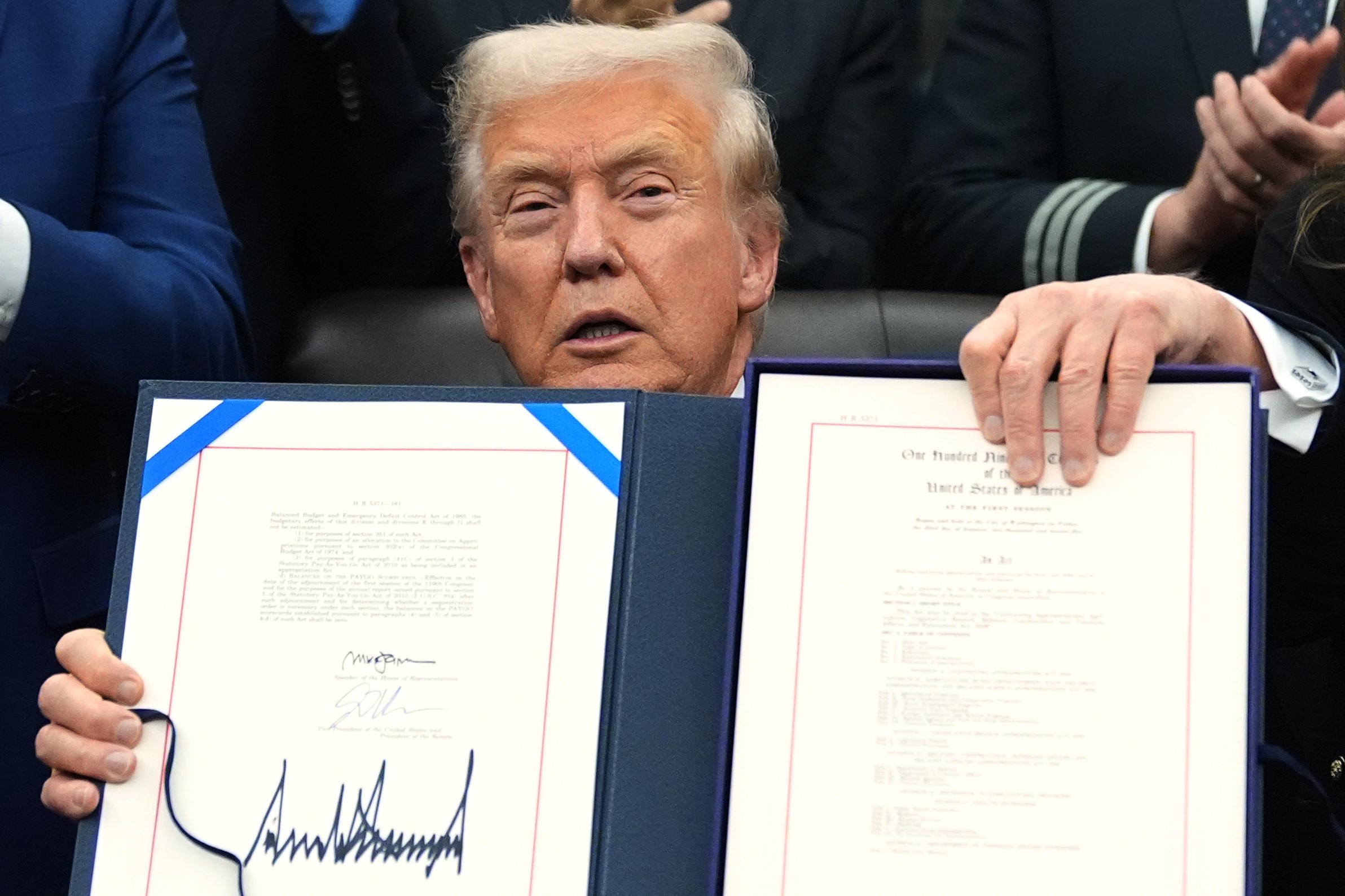After 43 days, a historic record with costly economic consequences, the federal government of the United States will finally reopen this week. The United States Congress approved this Wednesday by 222 votes in favor and 209 against, the last pending legislative step. President Donald Trump, from his office, also signed it.
Thus ends a dark episode, but only temporarily, as the wounds are still fresh and the underlying problems have not been resolved. The bill would provide funding for some federal agencies for a whole year, but only extends the capabilities of the rest of the government until January 30, when all the turmoil will repeat. In exchange for the votes of Democratic senators and congressmen, the president's side agrees to reverse the layoffs of public workers carried out during the shutdown and pay the salaries of all officials. And to 'compensate' his supporters, the amendment clears the way for Republican senators, whose phone records were part of the investigation conducted by special prosecutor Jack Smith in the investigation into the Capitol attack on January 6, 2021, to sue the government demanding at least half a million dollars each.
The effects of this 'shutdown' will be felt for a long time. The Congressional Budget Office believes that the losses for the economy will be in the billions of dollars, up to 1.5% of GDP this quarter even, although some will be recovered by 2026. Officials are already being notified to start returning to their positions, but it will take time for them to receive their October salaries (part of the agreement reached, as Trump threatened not to pay them). The same goes for benefits for programs that provide food to 42 million citizens. Or for delays at airports, as the Secretary of Transportation has already warned that adjusting flights may take more than a week after forced cancellations.
"The total effect of the damage caused by his antics will take weeks or probably months to calculate, including the serious damage they did to our economy," Trump reproached from the Oval Office after signing the documents.
On October 1, due to the lack of agreement between Democrats and Republicans, hundreds of thousands of public officials went home, without work or pay. Others, considered essential, had to report to work, but also without pay. Since then, President Donald Trump and his allies tried up to 14 times to convince a dozen rival senators to reach a minimum agreement that would allow a return to normalcy. All attempts failed, until last Sunday. Since then, when eight Democrats broke ranks, everything has accelerated. The Senate formally voted on Monday and the House and the White House did so on Wednesday night.
Democrats had refused to extend public funding because Trump's economic budgets include maintaining tax cuts for the highest incomes, but do not renew the tax exemptions implemented by Barack Obama that help more than 20 million citizens reduce their health insurance premiums, something very expensive in the US. Also because, after nine months in office, it was the only opportunity to try to punish the Executive. Perhaps an effective one, as in the first electoral test, held last Tuesday, Republicans were defeated in all key positions at stake, from mayoralties to governorships, including state court members.
However, surprisingly, eight senators, against the sentiment of their party, decided that enough was enough. Just as six congressmen reiterated this Wednesday, despite the pressure, warnings, and criticisms (one Republican senator voted against and two congressmen did as well). Some for electoral calculation (in 2026 the entire House of Representatives is up for reelection and a third of the Senate), others out of fear that Trump would carry out his threat to stop funding food assistance programs (SNAP in English) that benefit more than 40 million people. Others because they believed the country had suffered enough and there were risks of accidents even due to the lack of air traffic controllers. They did so without achieving the goals of the progressive side and in exchange for a vague promise that Congress, in December, will vote again on those essential tax provisions before they expire permanently. "There are only two ways for this dispute to end. Either the Republicans finally decide to extend the tax credits of the Affordable Care Act this year, or the American people will vote them out of office next year and put an end to Donald J. Trump's Speakership once and for all," warned Congressman Hakeem Jeffries, leader of the Democratic minority.
The response from the White House Budget Office has been to boast that the amendment signed by the president ignores "any of the partisan provisions and 'poison pill' clauses demanded by the Democrats," specifically referring to those Obamacare provisions mentioned earlier. "We are going to pay people money, they are going to buy their own healthcare, and we are going to forget about this Obamacare madness," the president said tonight. "I want the money to go directly to the people. You will go out and buy your own health insurance and negotiate different plans... you will be your own entrepreneurs," he insisted.
The House of Representatives had a hectic Wednesday after a month and a half with no activity. Both due to the 'shutdown', as the federal closure is known in the country, and due to the vote that Democrats are trying to organize to force the Department of Justice to declassify all the information it has on the 'Epstein case', which repeatedly implicates President Trump for his past ties to the financier and sexual predator.
